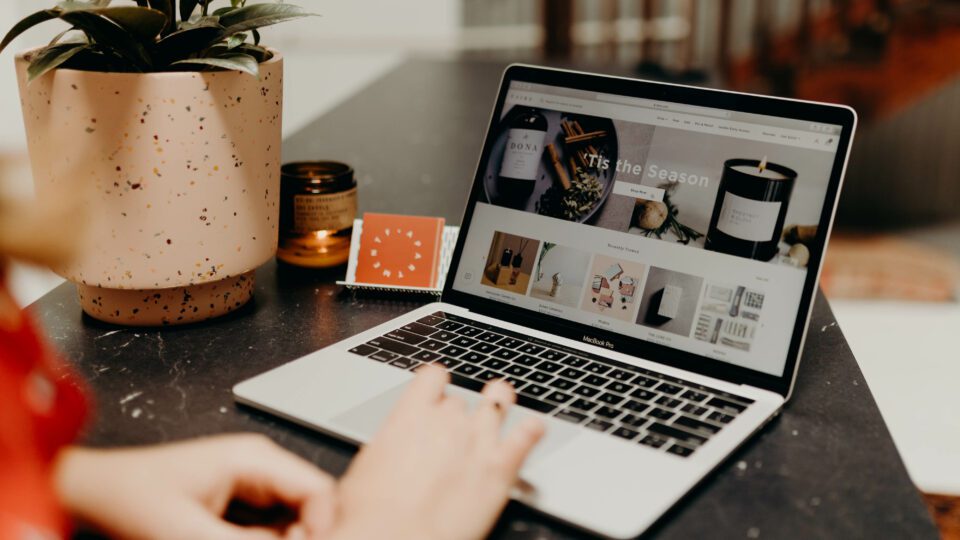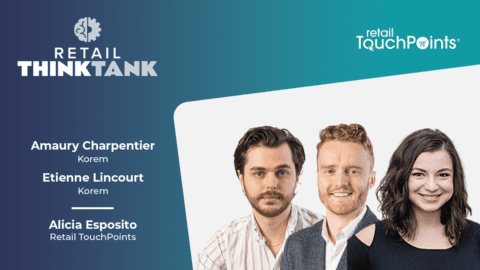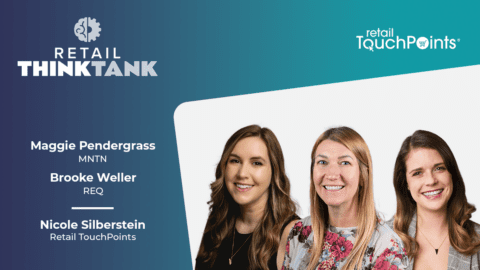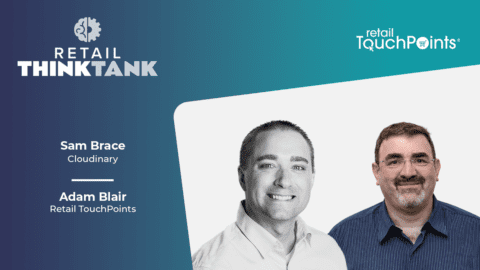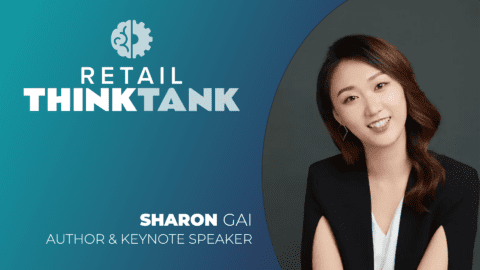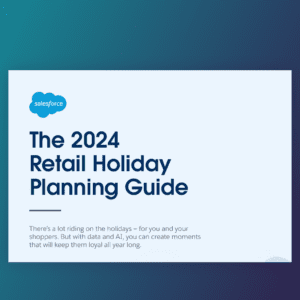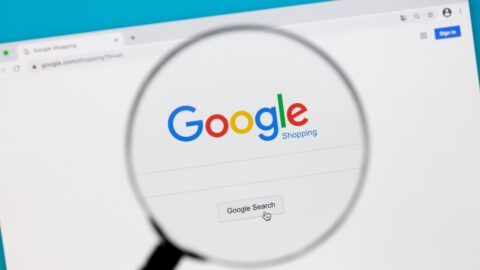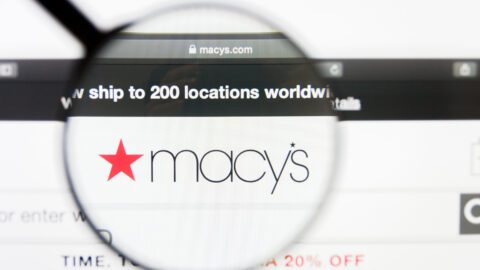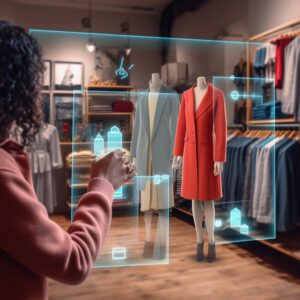For nearly two decades now online marketplaces have proliferated, beginning with Ebay and Amazon, followed by Walmart, Etsy and countless others. But one area of commerce has stubbornly resisted this move toward digitization — wholesale.
“There are three major players in the retail industry — the brands that make the products, the retailers that sell the products and the consumer who buys from the retailer,” said Max Rhodes, Co-founder and CEO of B2B marketplace Faire. “All the innovation over the last 20 years has been focused on the consumer leg of that triangle — either connecting brands directly to consumers, like Shopify, Amazon and Etsy do, or connecting retailers to consumers, like Instacart and Square do. People basically just ignored the third leg of that triangle though, the wholesale leg.”
That has begun to change now, and among the swath of new platforms aiming to serve this sector, Faire has emerged as a front-runner. Since its launch in 2017, the platform has raised more than $1.29 billion and was valued at $12.59 billion after its last funding round in May 2022. The platform now features more than 100,000 brands from 100+ countries, and in September 2023, ecommerce vanguard Shopify took a stake in the company and made Faire the recommended wholesale marketplace for its millions of merchants.
Retail TouchPoints sat down with Rhodes, as well as some of the retailers using Faire, to learn more about this evolution in the wholesale industry, Faire’s role in it and the impact it’s having on brands and retailers.
Advertisement
Bringing Silicon Valley-Style Innovation to Wholesale
In 2011, Rhodes was working for payments solution Square in Silicon Valley while running a side hustle as a wholesale distributor for New Zealand-based Blunt Umbrellas. “It was this crazy juxtaposition of experiences, where during the week I was helping small businesses by building technology and really seeing the power technology has to make life easier for small business owners, and then on the weekends I was a small business, going to trade shows and chasing down retailers who were paying us by check,” said Rhodes. “It really opened my eyes to the fact that there was a big opportunity to try to simplify things and make life easier for both the brands, like [Blunt], and the retailers that were buying from us.”
That “dual identity” turned out to be just the right combination for inspiration to strike: “I was working on the Blunt Umbrellas thing for almost a decade before starting Faire, and I kept asking myself, why hasn’t somebody moved this online?” he said. “Honestly, I think it was just that there weren’t many people at tech companies that had ever been to a [wholesale] trade show; it just wasn’t on their radar. The opportunity was hiding in plain sight.”
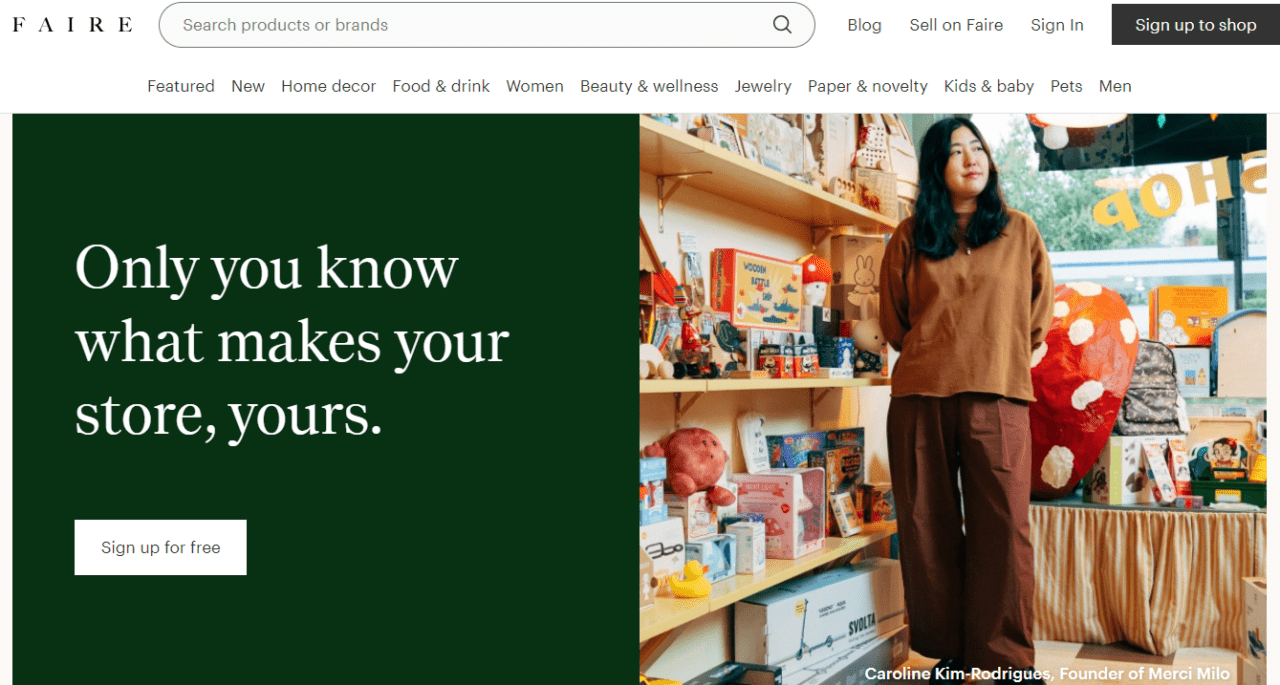
In 2017, Rhodes took the leap and founded Faire alongside three of his Square colleagues, including current COO Jeff Kolovson, who previously led Square’s retail division.
“These retailers that we serve are incredibly resilient,” said Rhodes. “Over the course of the last 20 years there’s actually been a resurgence in local retail in the face of the quote-unquote ‘retail apocalypse.’ That’s because the retailers that have survived already went through their version of the retail apocalypse in the ’80s and ’90s, when Walmart and Best Buy and all the big box stores came along offering lower prices and larger assortments. The independent retailers that survived were the ones that figured out how to compete on curation, on experience. They’re adding to the vibrancy and character of their communities. The one thing that has held them back is they haven’t always had access to technology. Our vision is to empower these retailers to do what they do best — to strengthen the character of their communities through their assortments — and we use technology to do it.”
Empowering Local Businesses to ‘Compete on Curation’
One retailer for which this has certainly been true is San Francisco’s Willow on the Green, which specializes in British cheeses and accompaniments (it doesn’t get more curated than that). While the cheeses themselves aren’t sourced on Faire, owner Alex Sinclair said that about one-fifth of the shop is: “We use Faire for very, very niche, little-known products from independent makers in the UK, specifically Scotland, Wales and England,” said Sinclair in an interview with Retail TouchPoints. “If you were in London, you’d find these items in the most luxury-oriented stores, but not a general supermarket, and we’re bringing them to America for the first time.”

Sinclair calls these items his store’s “unique hooks,” and they include things like olives brined in olive oil from Olives Et Al, Puckett’s Pickles, PekoeTea out of Edinburgh and hand-raked sea salt by Isle of Skye.
Sinclair started his shop during the pandemic when he couldn’t travel home to the UK. At the time Faire was running a deal to promote its expansion into Europe, where the platform would cover import taxes. “I jumped on that because I was trying to find independent British goods, but how does a little business grab really interesting things?” he said. “That [Faire deal] started us off with some of the early stuff, and we did a lot of risk-taking to spend for these products. We lost some money, we gained some money, and then it sort of snowballed where [at trade shows] those specialty food makers were starting to use Faire as well, so we could go through Faire directly and broker those deals [at the shows].”
Like most wholesale distributors, Faire also will guarantee a retailer’s exclusivity on products within a designated area, which has become more important to Sinclair as his store has taken off and nearby retailers have taken note. In particular, the Safeway/Albertsons-owned Andronico’s supermarket around the corner from Willow on the Green has tried to edge in on Sinclair’s turf, displaying signs promoting that it sells British cheeses and debuting its own lemon curd (along with signage explaining what lemon curd is).
“It’s become this crazy thing where now my competition is transnational corporations, and that’s where Faire becomes interesting because there’s an exclusivity of your zip code,” Sinclair said. “I can protect myself against competitors going, ‘Wow, that’s a great product. I’m going to flood the market with an undercut of the same product.’ That means that my customers get to experience something that they only get at my shop.”
If you’re as intrigued as we were by Willow on the Green, then check back Friday, July 5 for more of our conversation with Sinclair about his store and business philosophy in our new series “Small Business, Big Ideas.”
Solving for Inventory Risk with Data-Backed Products
As Sinclair pointed out, the trial-and-error process to find those unique products that make a small business stand out can be financially risky.
“The key insight for us that I think has led to our success was the realization that the fundamental problem that trade shows and sales reps and the whole supply chain are solving for retailers is inventory risk — knowing that what I’m buying is actually going to sell,” said Rhodes. “It’s not hard for retailers to go out and find products. What’s hard is finding products that are actually going to sell. The innovation that we at Faire brought to the market was offering free returns and net-60 payment terms. That enabled us to learn what products sell where, so now when a retailer comes to Faire and they search for something, they can have confidence that that product is going to sell, because the data of 100,000 other retailers is powering our algorithms. The products are vetted, they can see the reviews, and if it doesn’t sell it doesn’t actually cost them anything. They can return it, and they don’t have to pay for it.”
These generous financial terms were what first drew in Mackenzi Farquer, owner of the Lockwood chain of home décor and gifting shops located in Brooklyn and Queens, N.Y. “For me, the thing about Faire really is the perks,” Farquer said in an interview with Retail TouchPoints. “Being able to get net-60 on every order is unheard of in this industry. Net-30 is typically the most you would ever see, and not even every vendor is able to offer those terms. Then with Faire Insider you can get things like free shipping, which is a huge cashflow change for us.”
She started sourcing some of her assortment from Faire during the pandemic, and now the platform accounts for about 50% of her inventory.
Now Faire has taken it a step further and launched the Open with Faire program, which gives brands financing to source up to $20,000 in inventory on Faire to open their store under those same terms (net-60 payment and free returns).
“Traditionally it’s really hard to get capital when you’re first starting out, and inventory tends to be the biggest expense, so the fact that we’re offering them access to inventory risk-free has been a major driver of growth for us,” said Rhodes. “There have been a lot of new businesses that have started since the pandemic, and I think we’ve played a big role for some of these stores in helping them get off the ground.”
The Williamsburg location of Lockwood is one of them, with Farquer saying she “leaned heavily” on the Open with Faire program for the opening of her newest shop. “Traditional capital access these days is nearly nonexistent; banks and underwriting became extremely conservative during the pandemic,” said Farquer. “While I would have historically said that I have a good relationship with my traditional bank, I would no longer say that is true, and Faire has come in to fill that gap. Whereas previously a line of credit or a term loan might have helped finance inventory, now I just rely on Faire.”
Democratizing Wholesale
The overall effect of Faire, and other B2B platforms like it, is a democratization of the wholesale sector that is benefiting independent brands and retailers in particular, said Sinclair. “In a traditional system, the importer does a deal, the distributor takes some risk and the retailer takes the brunt of that risk with no choice,” he said. “They say, ‘Here’s our list of goods, this is what’s available. What are you going to take?’ I’m just the salesman at the end, and you end up with the same eight products with no choice and no variance over and over and over again until they’ve exhausted all interest. Then if it stops being profitable, it’s discontinued, and you’re done.
“What Faire does is it allows more trial runs and for us to say, ‘This product that you all thought customers would never want is actually selling very, very well across specific regions.’ Faire gives more power to the retailer and the independent maker, when traditionally we’ve both been left out of the equation,” Sinclair added.
Faire’s growth hasn’t ended person-to-person wholesale relationships, but it has certainly changed the landscape: “Faire has been incredibly disruptive; it really threw the well-known sales model of having sales representation for all major brands in your area completely out of whack,” said Farquer. “It has taken the better part of four years to normalize those relationships, and you still hear sales reps talking about how Faire’s ruining their lives.
“We were actually hesitant to jump on Faire at the beginning because there was such immense pressure from sales reps that this was going to affect the way they’re able to do business, but there are still things that in-person sales reps do better than Faire,” she added. “Things like protect [my territory], help me throw events, know what I sell. Faire has an AI-based algorithm that’s pretty good, but a sales rep physically comes into my store and sees what I have, understands the nuance. Also, there is no inspiration on Faire. A trade show tells you what a trend is, what the vibe is, gives you selling help. At a trade show you get to meet creators and understand why things came to be. Faire, to me, is exceptionally good at refilling what you’ve already purchased.”
But there’s no denying the disruptive force of Faire on the wholesale sector. The company is continuing to refine its platform and build out its niche in this world, with investments in its search engine as well as the constant addition of new brands and expanding its reach internationally.
“The technology that we’ve built has now gotten to a point where we just do it really, really well,” said Rhodes. “We have the most products, we have the best algorithms powering our recommendations, and a lot of that is just built on sheer scale and the fact that we were the first to market.
“We’re also investing really heavily in our point-of-sale integrations to save retailers time adding products to their POS systems; that was a big part of the Shopify partnership,” he added. “Now that retailers have started to see how much easier it is to buy online through us, I think our growth and the digitization of wholesale in general is only going to continue to accelerate.”




